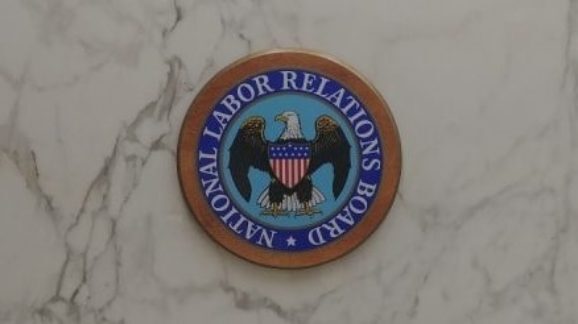Starbucks Alleges an NLRB Whistleblower Reveals Election Shenanigans

Photo Credit: Getty
A challenge by Starbucks to a recent union election overseen by the National Labor Relations Board (NLRB) includes a remarkable claim by the company: There is a whistleblower inside the NLRB. The individual was reportedly disturbed by misconduct within the NLRB, the independent federal labor watchdog agency, and provided Starbucks with internal agency communications to expose this.
Starbucks made the claim in a letter to the board earlier this month. The corporation alleged that the NLRB manipulated the voting in an election at a Starbucks location in Overland Park, Kansas, to ensure the Workers United union would win. Starbucks said the allegation was “voluntarily reported” by a “career NLRB professional,” whom it has not named, who was “concerned by the failure to ensure appropriate neutrality” in the election. Starbucks requested that the agency ensure that this mysterious individual, who provided the corporation with internal emails between the NLRB and the union, does not face retaliation.
“This documentation shows that Board personnel have secretly colluded with the Union to affect multiple stages of the mail-ballot election process, including the providing, returning, and counting of ballots. The purpose of this misconduct was to tip-the-scale in order to deliver the outcome sought by the Union,” Starbucks said in an August 15 letter. “The result of the misconduct was to ignore—and bypass—the actual sentiments that Starbucks partners may have expressed in properly conducted elections.”
The allegations come as unions have made a major push to organize Starbucks workers. Staff at more than 310 stores in 36 states have reportedly filed for election petitions, with 220 having voted to organize. Starbucks is now demanding that the agency suspend all elections at its stores and conduct a thorough investigation of its claims. Rep. Virginia Foxx (R-NC), ranking minority member on the House Education and Labor Committee, has called for an investigation.
The corporation charges that, in the Overland Park case, NLRB officials went to great lengths to accommodate the union when it reported that Starbucks workers favorable to the union had had trouble voting. The officials found alternate means for those workers to cast ballots, including allowing in-person voting despite the election being by mail-in ballot. The board concealed this from Starbucks while denying the company’s requests to accommodate voters it had identified who hadn’t been able to cast a ballot.
The NLRB has not yet responded to Starbucks’ charges.
NLRB General Counsel Jennifer Abruzzo tweeted earlier this summer, “87 years ago, FDR signed the NLRA, making it the policy of our nation to encourage collective bargaining and to protect workers’ rights to freedom of association, self-organization, & choice of representative. Today’s NLRB employees work hard every day to effectuate that policy.” [Emphasis added]
With statements like that from the NLRB’s leadership, it is understandable for a career staffer to become concerned to the point of and providing internal emails to Starbucks, perhaps seeing the company as having the clout and resources to challenge the board. Other major corporations like Amazon have accused the NLRB of bias.
Who is right? Abruzzo and others point to the text of the NLRA, which does say that “encouraging collective bargaining” is the federal policy. However, the law says that’s the case only when there are “substantial obstructions to the free flow of commerce,” such as labor unrest, that unionization could resolve. The bill’s author, Sen. Robert Wagner, was adamant that the government otherwise didn’t take sides and said claims to the contrary were a “malicious falsehood.”
The broader question of whether the federal government should encourage unions has not been addressed by the courts. Efforts by Starbucks, Amazon, and others are making that possibility increasingly likely.